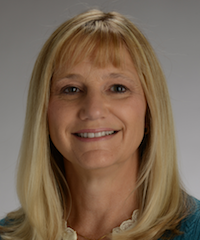Dr. Haun
June 28th, 2018 by melindaroney
Posted in Uncategorized|
This week Alex and I have been working with Dr. Haun, the surgeon here at BMC. She is amazing! She is the only full time surgeon here. She had a brief respite when Dr. Faile was here but otherwise she is on call all of the time. She is a wonderful example of a Christian woman. She does the work that several surgeons back home would be doing (on call all the time, handles all emergency surgeries) and does it all with an attitude of service and a smile! She is also a wife and a mother. I am certain God is glorified by her life.
Today was a difficult day in that she had a patient who presented with an acute abdomen late yesterday. She is in her 50s or 60s we think (many people over here do not know their age) and had 4 days of severe abdominal pain and bloating. Her abdomen was quite distended and her exam was consistent with an acute abdomen (inflammation of the lining of the abdomen usually from a perforation of something in the abdomen, needing surgery to fix it). She got IV fluids, a catheter and an NG tube overnight.
This morning Dr. Haun was ready to take her to surgery but the anesthesiologist was uncomfortable as she was breathing fast. Her oxygen saturation was good and her pulse and blood pressure were fine. The chest x-ray and abdominal x-ray had not been done for some reason (a fairly common occurrence). Her sono showed what looked to be thickened and dilated bowel. Her hemoglobin was 8. He wanted her to have a transfusion, so that was done. By 4 PM she had had the blood but was actually looking worse. Dr. Haun talked with the patient about the high risk of her surgery but that she would likely die without the surgery. The patient said “Take me to surgery and if I die they can take me home and bury me”. Her family was not around at the time but others heard this statement.
The anesthesiologist was not comfortable without the family being in agreement. She had 3 sons, 2 of which finally arrived to discuss her prognosis. One son was intermittently contacted by phone. There was also a daughter there but she did not seem to be a part of the decision making process. The sons said they would take her home to die, stating that mom was not in her right mind. More conversation ensued with the anesthesiologist, most of which centered on the cost of surgery/hospitalization and that payment would be required irrespective of outcome. Dr. Haun pointed out that mom wanted surgery even if there was a possibility she would die. The anesthesiologist seemed to indicate that it was the sons’ decision. After more deliberation, they came back and had decided that she would have surgery. This was 6 PM.
The approach to consent in a high risk, emergency situation was quite different in Ghana than the US. I felt myself wanting to say “she wants surgery!” and “she is of sound mind!” Alex turned to me and said “don’t worry, if anyone is asking us (my 3 sons) about your potentially life-saving surgery, I will say “do the surgery”! Good to know…
We did operate on her and Dr. Haun removed her dead bowel due to a sigmoid volvulus (her intestines became knotted like a garden hose and a section of large intestine died). She now has a chance to lead a normal life, barring complications in her recovery.
Also we saw a great example of compassion as Dr. Haun consulted on a boy with an osteosarcoma. The boy is about 12-13 and presented 4 months ago with a swelling in his leg above the knee. At that time, Dr. Haun thought it was cancer of the bone and recommended an amputation. They wanted to see an orthopedic specialist in Tamale. He also recommended an amputation. They came back to clinic this week to see Dr. Haun for surgery. The leg is now the size of a basketball, from above the knee to the groin. He has palpable lymph nodes. Dr. Haun sat down with the boy’s father and explained the situation and expressed how sorry she was that there was nothing she could do. She told him about her faith in Christ and that although there is sickness and pain in this life, eternal life is free of those things. She made sure he understood the gospel and then asked about his son’s understanding of his condition. His father said he was aware as the chaplain had spoken to them earlier. She asked if his son knew about Jesus and his father said he did. She asked if she could talk to his son about Jesus and pray with him. He agreed. She presented the gospel to him in Mampruli and we all prayed with him. A large group of nurses were also there to hear the gospel. Please keep him in your prayers for comfort and strength in the days to come.
So we saw Dr. Haun (with God, of course) save 2 lives today: one physical and one eternal. This week we have also seen her plant innumerable seeds of God’s love through service to others in her words and actions.

 Hello! My name is Melinda Roney. I am a Practicing Professional, and I’m starting my INMED service-learning experience at The Baptist Medical Center in Ghana beginning in June 2018.
Hello! My name is Melinda Roney. I am a Practicing Professional, and I’m starting my INMED service-learning experience at The Baptist Medical Center in Ghana beginning in June 2018.